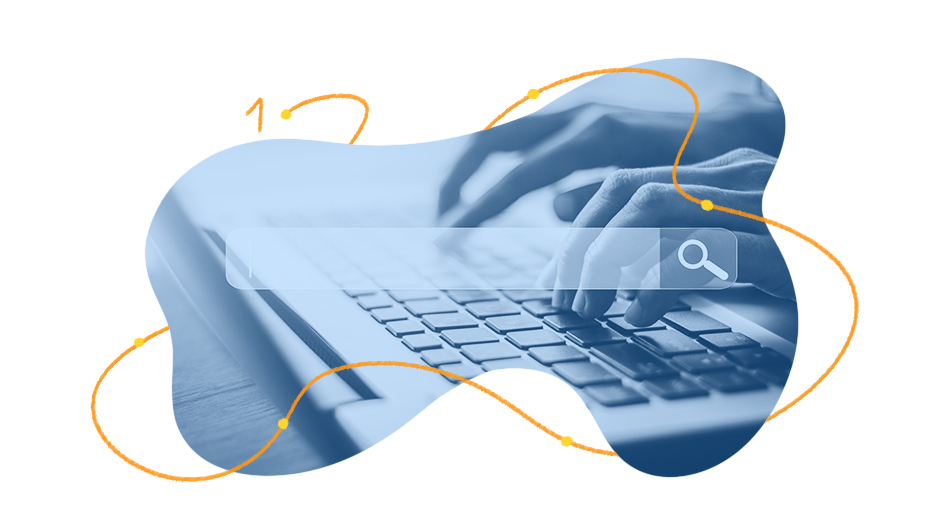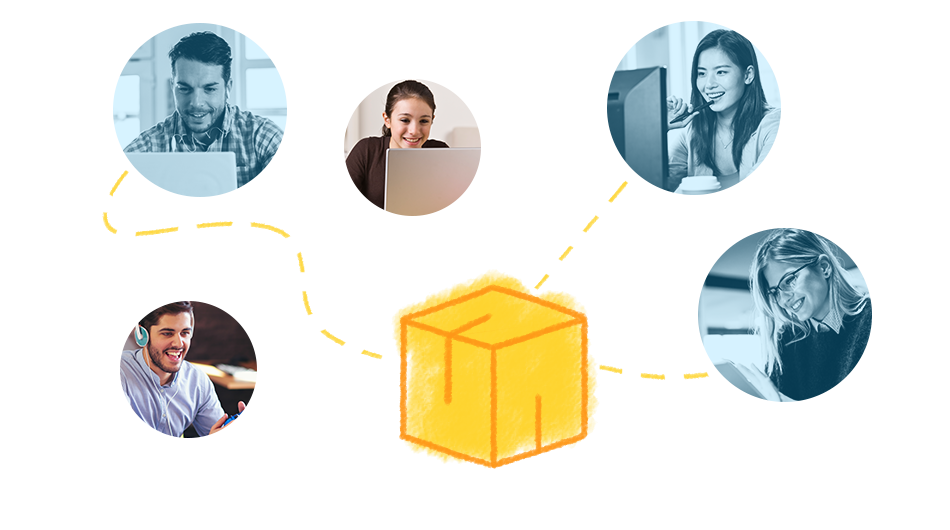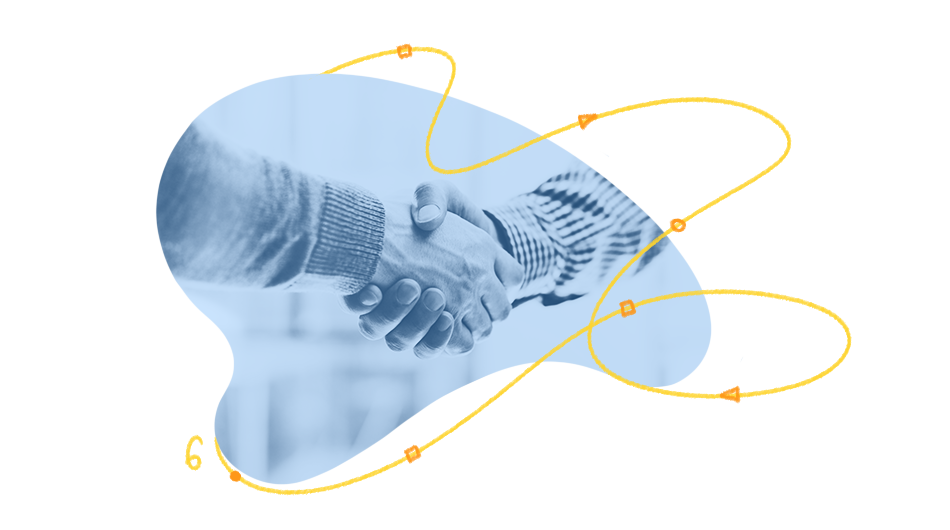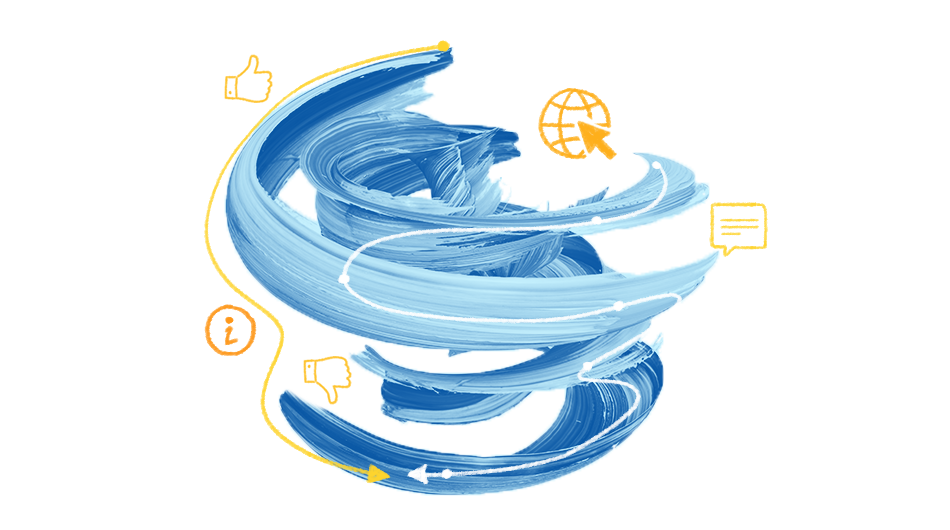A marketing funnel is the path that customers take from being aware of your online course to actually purchasing it. It is also the process of converting a visitor on your website or blog to an actual customer. Building a good marketing funnel is the key to your successful online sales. A marketing funnel contains six main stages: awareness, interest, consideration, intent, evaluation, and purchase.
Clients often ask me why it is necessary to create marketing strategies, as well as steps to implement them, when we can just create a website or a landing page and sell the product there. And I always answer by giving them the example of the shoe store. There are many shoe stores in my neighborhood, but I only go to one of them to buy my shoes. Why? Because they are not just selling shoes, they are also creating a relationship with their clients. I always learn something new about shoes when I go there. The consultant is an excellent salesperson who does not try to sell you shoes at all costs, but, rather, tells you to wait until they go on sale or will let you know secretly that a new collection will soon be in stock. The shoe store has built an excellent marketing funnel to both attract me as a customer and to keep me loyal. That is exactly what you need to do if you want to be successful in your online teaching business.
Just think about it! In this day and age people have free access to information, they like to make informed purchase decisions, and most of the time they buy something based on the value they get from it and based on their emotions. So if you try to just sell your online course and you do not build a relationship with your clients through a well thought-out marketing funnel, your sales will not be very high.
Marketing Funnel Defined
Think of your marketing funnel as the path that your customers take from being aware of your online course to actually purchasing it. It is also the process of converting a visitor on your website or blog to an actual customer. Building a good marketing funnel is the key ingredient to your successful online sales. Let’s look at the six main stages of the funnel and the actions your customers take at each one of them.
- Awareness – At this stage customers are just becoming aware of your product. They are looking for an online course, but are not yet ready to buy one. This is the stage where they visit your website or blog, click on your ad, or come across your course in a search engine. As this is the first stage of the funnel, it is the most important one as well. If you do not get enough people to enter at this stage, you will not have enough leads to turn into customers later on.

- Interest – This is the stage in which you can actually generate your leads and where they are showing interest in your products. You have managed to grab their attention and now they want to learn more about your teaching experience, the courses you offer, the feedback from your students, etc. At this stage you should be able to earn the trust of your potential customers and develop a relationship with them.
- Consideration – This is where your leads turn into qualified marketing leads, meaning that those people are actually considering making a purchase from you. Did you notice that your customers are thinking of a purchase at the third phase of the funnel instead of at the first one? Yes, getting your customers to this point is difficult, but at this stage you know that you are now targeting the right people.

- Intent – People who reach this stage have a real interest in signing up for your course. These are the people who responded to your email campaigns or contacted you after they saw the demo version of your course. However, be aware that the customers are not 100% yours at this stage. On the contrary, now that you have helped them reach this stage, your competitors are watching for them and may “attack” them with targeted campaigns.
- Evaluation – People are now evaluating your course, which means that your audience is gathering final proof that your course is the best fit for them. You should have prepared for this stage ahead of time. Your website should have all the information about your course, the degrees and certifications you possess, the events that you will be attending, the awards you have received as a teacher, the successful stories of your students, and the results that your students can expect after taking your course. Last but not least, share what the added value of your course is – whether it is going to change their lives or help them start a new career, etc.
- Purchase – Yay, we made it! Your leads are now turning into customers. Pay attention at this last stage and make sure to create a good sales landing page with deals, discount coupons, deadlines for signing up, etc.

A marketing funnel is sometimes simply divided into three phases:
- Top of the funnel (TOFU) – awareness and interest stages
- Middle of the funnel (MOFU) – consideration and intent stages
- Bottom of the funnel (BOFU) – evaluation and purchase stages
Digital Marketing Funnel vs. Traditional Marketing Funnel
Technology has changed the way the marketing funnel is built and the way you should sell your product. The traditional marketing funnel was simply constructed by awareness, interest, and desire. Customers had to be aware of your product and have an interest and desire to buy it. They also had limited opportunities to compare products based on price and quality since they were limited by geography.
Of course, the internet changed everything. Customers can access hundreds of websites all around the globe and compare dozens of products. They can look for product reviews, customer satisfaction, better prices, sales alerts, etc. And all of this can be done without them even leaving their own homes. With so many brands and options available, the way brands sell to their customers has changed as well. They had to start competing for their customers attention through brand engagement, education, and customer relationship tactics.

There are two major differences between the traditional and the digital marketing funnel. The first is that nowadays customers experience the funnel in a different way. Some of them may skip several stages, others may convert just after remarketing strategies; the process of the marketing funnel is not linear any more but, rather, multidimensional. The second difference is that the marketing funnel is now focused on building relationships with clients. Brands have to work very hard to build this positive and valuable relationship in order to keep it over the long run with the intense competition that is out there.
Stay tuned for our next article on how to build a successful marketing funnel for your online teaching business.
